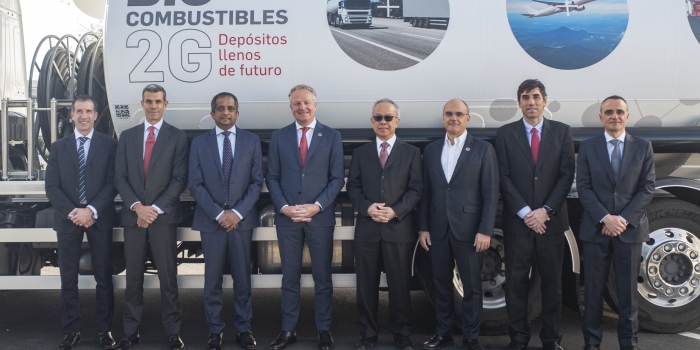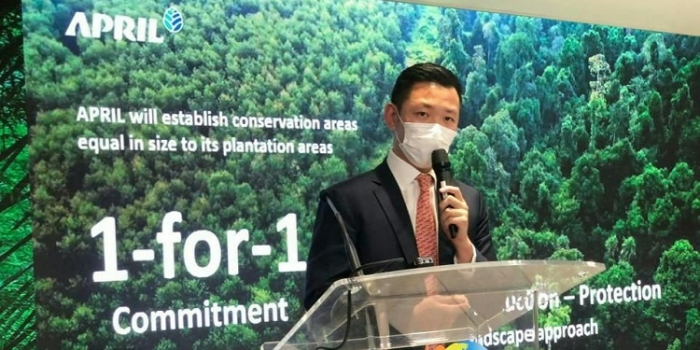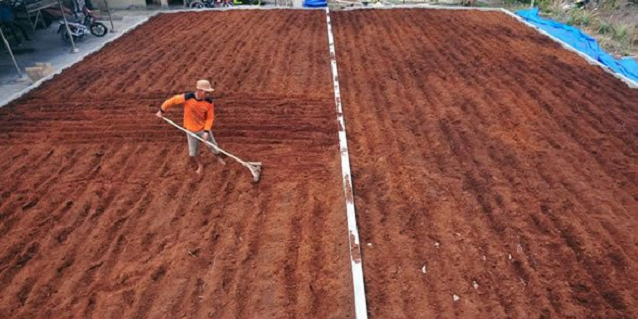Apical, through its renewable energy subsidiary Bio-Oils in Huelva, Spain, has established a joint venture with Spanish energy company Cepsa to produce second generation (2G) biofuels by constructing what will be the largest plant in southern Europe. The alliance marks Apical’s entry to the sustainable aviation fuels (SAF) market and a key milestone in RGE’s strategy to produce a range of fuels to decarbonise aviation, maritime and land transportation. The joint venture will involve the investment of up to €1 billion.
The new plant will begin operation in H1 2026 and will have a production capacity of up to 500,000 tons of SAF and/or renewable diesel annually, enabling the reduction of CO2 emissions by up to 90 percent, as compared to traditional fuels. The project was announced on 14 April 2023 at Cepsa’s La Rábida Energy Park with the participation of: Juan Manuel Moreno Bonilla, President of the Regional Government of Andalusia; Maarten Wetselaar, Cepsa CEO; Óscar García, Bio-Oils CEO; Dato’ Yeo How, President, Apical Group; Pratheepan Karunagaran, Executive Director, Apical; and Lamberto Gaggiotti, Head, Green Energy, Apical.
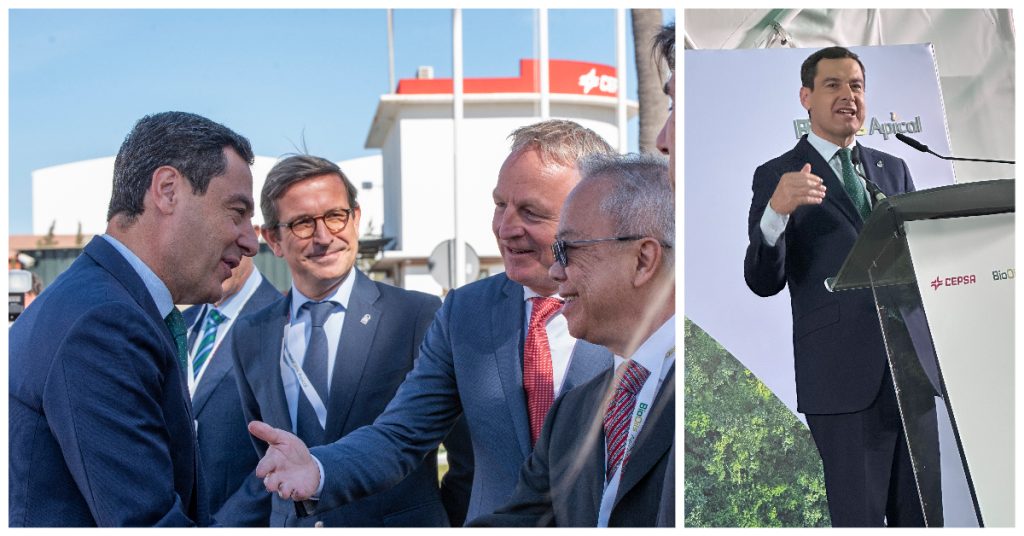
Juan Manuel Moreno Bonilla, President of the Regional Government of Andalusia, pictured greeting Dato’ Yeo How, President of Apical, and Maarten Wetselaar, CEO, Cepsa (left) and speaking at the event (right)
As a large global integrated processor of vegetable oils, Apical is able to efficiently and sustainably extract waste and residue from its supply chain and its processes in a transparent and traceable manner. As a result, the company is well placed to address the key global challenge in the production of SAF, which is access to feedstock (renewable waste and residue raw materials). Through the joint venture, the plant will secure the majority of its feedstock supply from Apical’s agricultural waste and residue through a global, long-term agreement.

Apical’s integrated processing facility in Balikpapan, Indonesia
The new facility will feature the latest technology for the production of second generation biofuels. Designed as a digital native plant, the new operation incorporates state-of-the-art technology including the latest industry advances in artificial intelligence, internet of things (IoT) and data analysis to maximise process efficiency, and ensure the highest standards of safety and environmental protection.
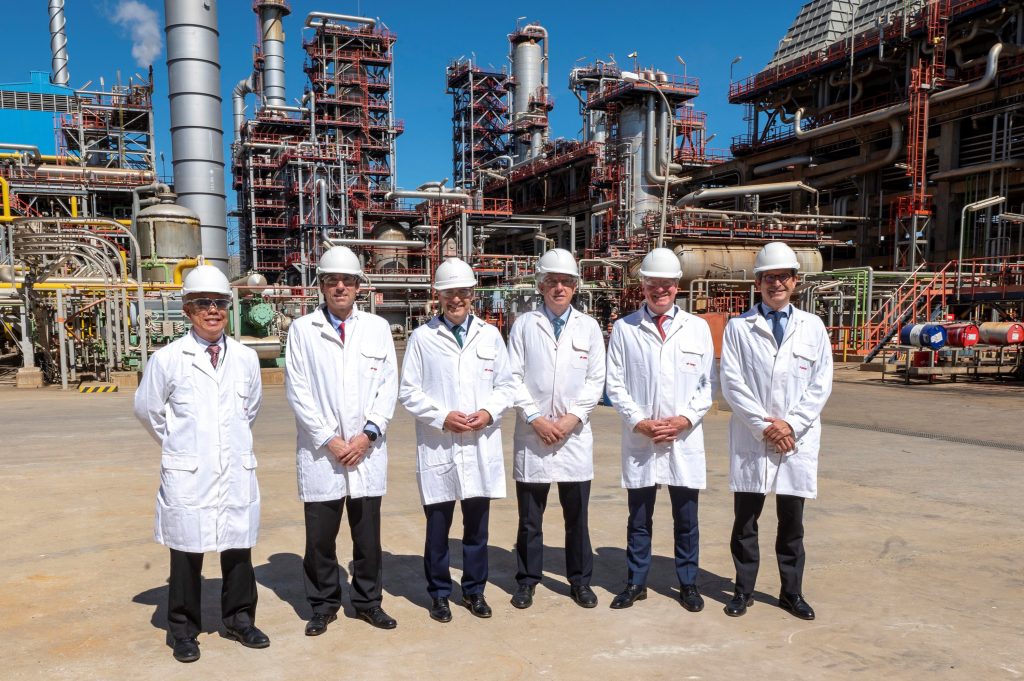
Juan Manuel Moreno Bonilla, President of the Regional Government of Andalusia (third from left), tours Cepsa’s Huelva, Spain operations with management from Apical, Cepsa and Bio-Oils
Dato’ Yeo How, President of Apical, said: “Apical’s ample supply of high quality second generation feedstock is key to ensuring that the new joint venture delivers on our shared vision to reduce greenhouse gas emissions across air, sea and land transport. The wider use of SAF and renewable diesel provides significant benefits on a global scale, both in terms of mitigating the effects of climate change and promoting sustainable economic growth. Apical, through Bio-Oils, will ensure the supply of raw materials and contribute our own expertise in biofuels production”.
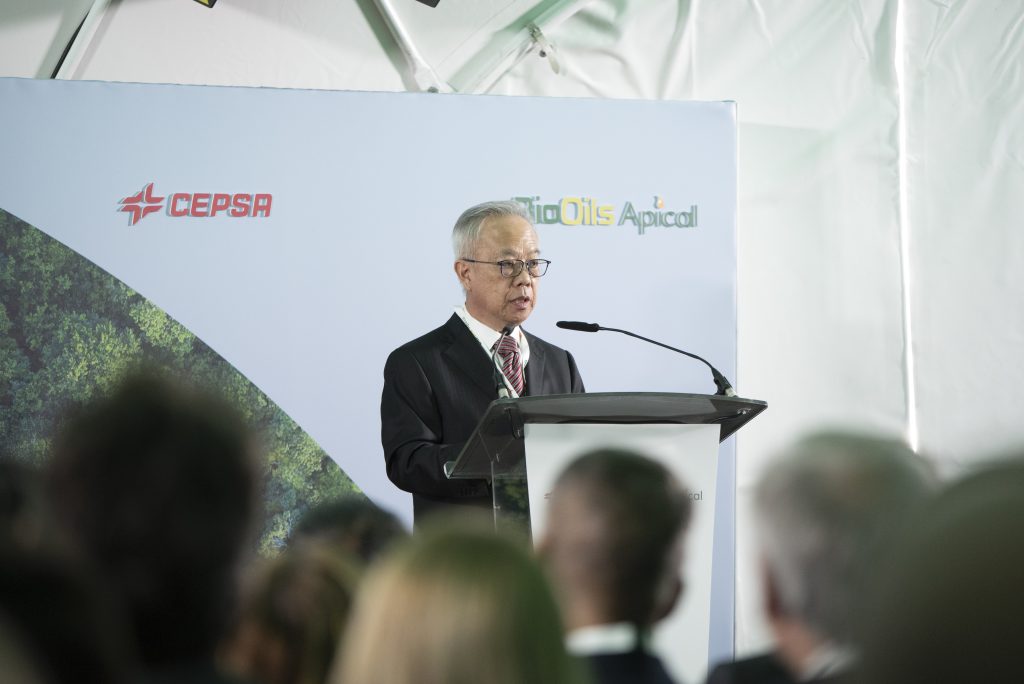
Dato’ Yeo How, President of Apical, speaking at the Cepsa/Apical joint venture announcement event
Pratheepan Karunagaran, Executive Director, Apical, said: “Aviation emissions account for 2-3 percent of global energy-related CO2 emissions and are expected to grow by 300-700 percent by 2050. To reduce the direct carbon emissions of flying, SAF can be an immediate solution. A next generation low-carbon fuel produced from 100% renewable waste and residue raw materials, it works seamlessly with existing aircraft engines and fuel infrastructure. As the availability of waste and residue grows in tandem with the expansion of Apical’s global footprint and capacities, we are able to create value-added partnerships for our waste stream in various parts of the world, especially in Asia”.

Pratheepan Karunagaran, Executive Director of Apical, interacting with attendees at the Cepsa/Apical joint venture announcement event
“SAF in Asia has much potential for growth and development. The good news is: as more countries begin to recognise the importance of sustainable practices and environmental responsibility, there is likely a greater focus on promoting the adoption of SAF throughout the aviation industry,” Pratheepan added.

The Cepsa/Apical joint venture marks Apical’s entry to the sustainable aviation fuels market
Speaking at the announcement, Cepsa CEO Maarten Wetselaar said: “This alliance is a decisive step in our strategy to lead biofuels in Spain and Portugal and positions Andalusia as a European benchmark in sustainable energy production and circular economy. Second-generation biofuels are an immediate solution to support our customers’ energy as they can be used in conventional engines, while enabling local development and increased energy autonomy in Europe”.
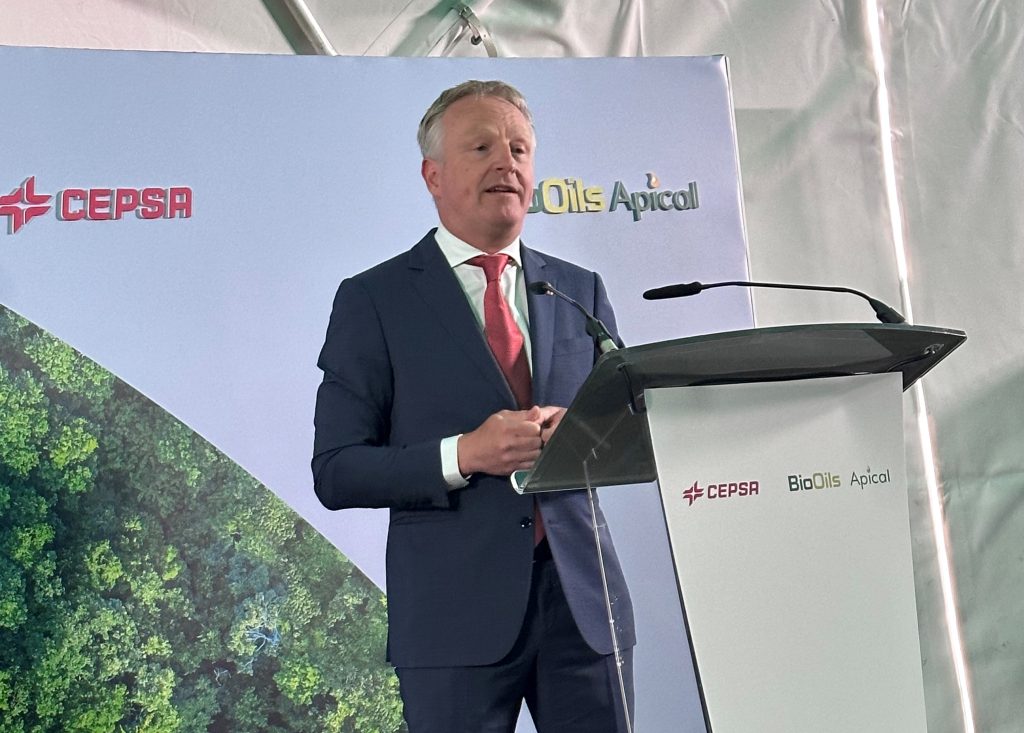
Maarten Wetselaar, CEO of Cepsa, speaking at the joint venture announcement event
Bio-Oils CEO Oscar Garcia said: “Cepsa has been Bio-Oils’ largest customer for many years. We share many operational advantages, such as the proximity and interconnection of our facilities and the use of the Reina Sofía berth for the charge and discharge of our products. This new joint venture is a natural evolution of our relationship”.
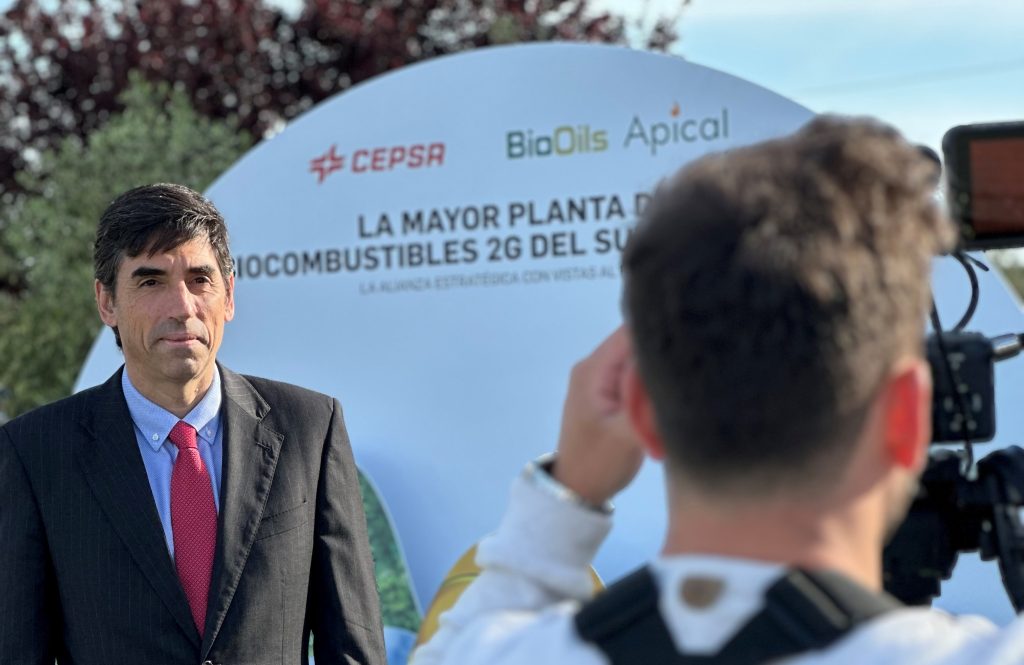
Oscar Garcia, CEO of Bio-Oils, pictured at the Cepsa/ Apical joint venture announcement event
The development of biofuels is aligned with Apical’s contribution to the Sustainable Development Goals – SDG 7 (Affordable and clean energy), SDG 8 (Decent work and economic growth), SDG 12 (Responsible consumption and production), SDG 13 (Climate action) and SDG 17 (Partnerships for the Goals) – and with the company’s Apical2030 commitments, specifically the targets in the Climate Action and Green Innovation categories.



